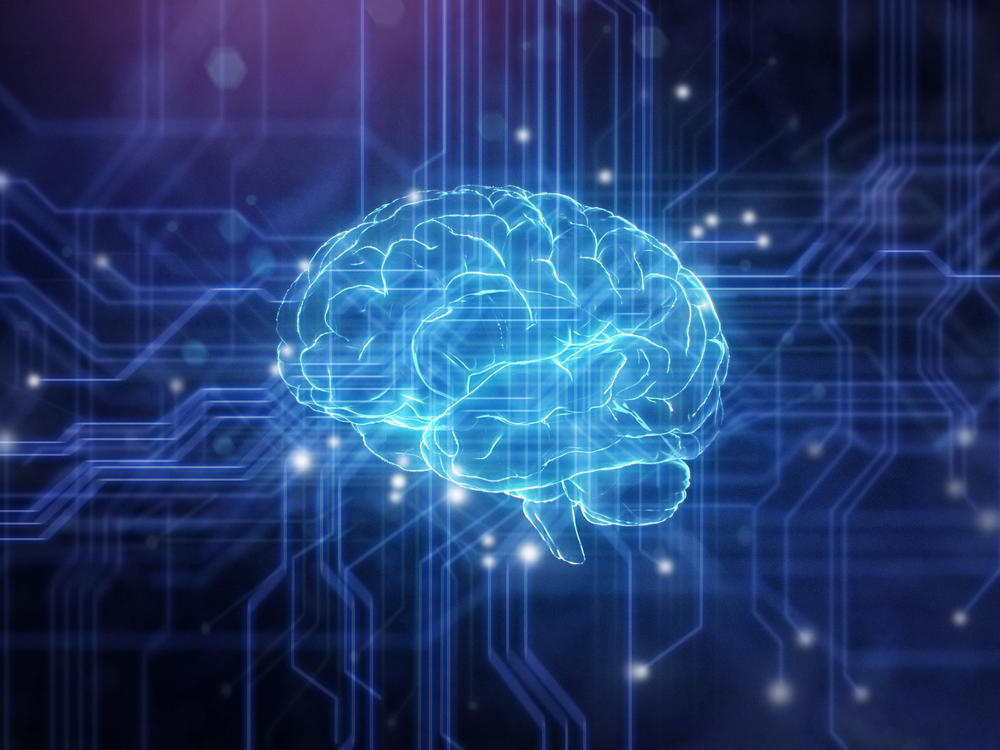Section Branding
Header Content
Studies Suggest Benefits From A Personalized Approach To Brain Stimulation
Primary Content
There's new evidence that brain stimulation isn't a one-size-fits-all treatment.
Customizing treatment for each person led to better results with both depression and obsessive-compulsive behaviors, researchers report in the journal Nature Medicine.
"The efficacy of stimulation can be enhanced if the stimulation parameters are tuned to the unique characteristics of an individual," says Shrey Grover, a graduate student at Boston University and an author of the study on obsessive-compulsive behaviors.
Brain stimulation, which uses tiny pulses of electrical or magnetic energy, has become a common way to treat Parkinson's disease and other movement disorders. It has also shown promise in a range of other conditions, including epilepsy, chronic pain, depression and obsessive-compulsive disorder.
Stimulation can be delivered through wires implanted deep in the brain or from external devices. But most treatments are standardized and do not respond to changes in brain activity.
The ability to personalize stimulation may be especially important in psychiatric disorders such as depression, says Dr. Katherine Scangos, an assistant professor of clinical psychiatry at the University of California, San Francisco and an author of the study on depression.
"Because depression presents differently in different people, it's likely that different circuits are involved in different patients' symptoms," she says.
Scangos was part of a team that took a personalized approach to designing a deep brain stimulation treatment for a woman in her 30s. She had severe depression that hadn't been relieved by drugs or other treatments.
Before brain stimulation, "the world was slow and gray and flat, everything kind of tasted the same," says the woman, who asked to remain anonymous to protect her privacy. "I had no actual sense of enjoyment, no ability to imagine."
Scangos thought the woman might respond to deep brain stimulation – but not the traditional kind, which "has typically stimulated in one location in every patient without really an understanding of how that affects each individual's depression symptoms."
Instead, Scangos and the team experimentally stimulated a number of areas in the woman's brain to create a map showing which area was associated with a particular symptom.
"She had an iPad, and she marked off her level of depression and anxiety and energy level in response to each pulse of neuromodulation," Scangos says.
Then the team used that information to design a system of deep brain stimulation that monitored these areas and delivered pulses of electricity only when abnormal activity patterns appeared.
"Our goal is to develop a brain pacemaker that can nudge these depression circuits back into a healthy state and keep them there," Scangos says.
And for this patient, it worked.
"I wasn't expecting anything to happen, and then suddenly there was this kind of whoosh of this sense of pleasurable happiness and glee," the woman says. "I literally think I giggled."
That response came during the process of mapping her brain. Stimulation of other areas produced a calming sensation, or made her feel more energetic. And her response to any given stimulation varied depending on her emotional state at the time.
The woman has since returned home with an implanted stimulator tuned specifically to her brain circuits.
"The world is back, I'm back," she says. "I feel like myself again."
A personalized approach to brain stimulation also helped people with obsessive-compulsive behaviors.
This study involved more the 60 people, some of whom had unwanted thoughts that wouldn't go away, or behaviors that they felt compelled to repeat, Grover says.
None of the participants had been diagnosed with obsessive-compulsive disorder. Yet many still engaged in behaviors such as repeatedly checking to make sure a stove was turned off, or compulsive washing of their hands.
"Particularly in times like ours today in the pandemic, such behaviors can be exacerbated," Grover says.
The team knew that these kinds of behaviors are linked to problems in the brain's reward network. So they studied the frequency of electrical signals in this network for the patients they planned to treat.
Then the researchers devised a unique stimulation treatment for each person. The treatment sends pulses of alternating current into the brain through electrodes placed on the scalp.
"It allows us to stimulate the brain and mimic the kinds of rhythmic activity patterns that are typically associated with healthy behavior," Grover says.
People who got the treatment, instead of a placebo, got better, he says.
"By the fifth day of stimulation, obsessive-compulsive behaviors had significantly reduced," he says.
On average there was a 28% reduction, he says, and the treatment was most effective in the people with the most severe symptoms.
Copyright 2021 NPR. To see more, visit https://www.npr.org.

